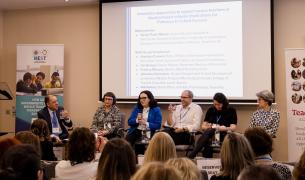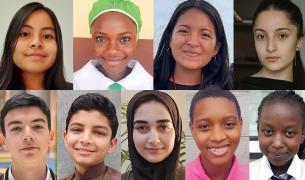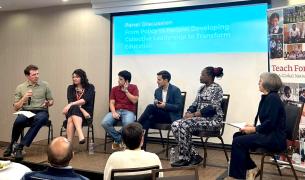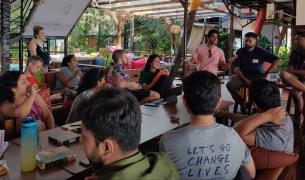An Excerpt From Grey Sunshine: Stories From Teach For India
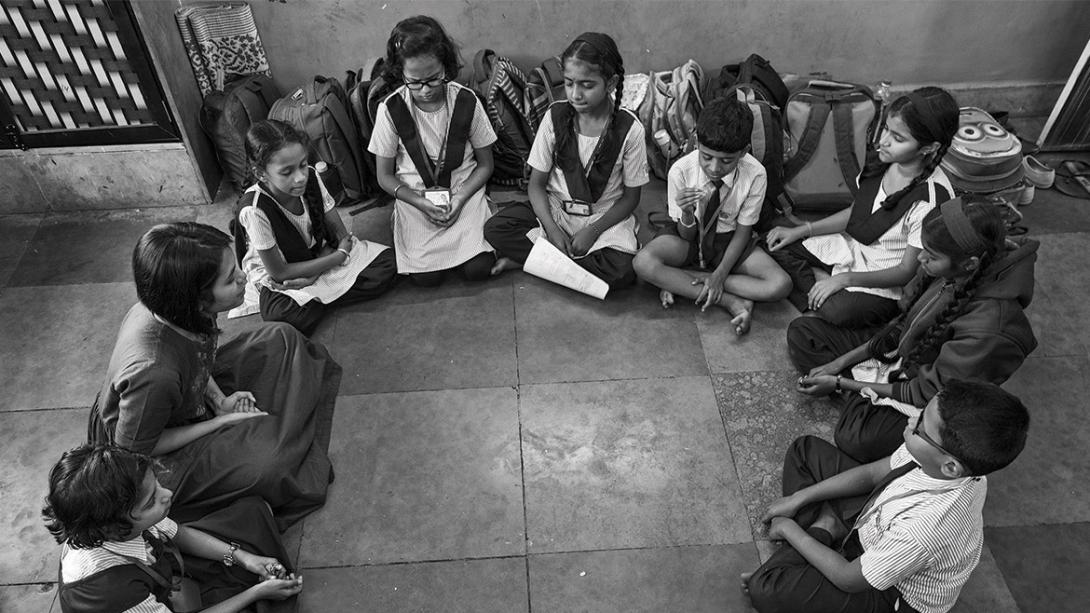

In the new book, Grey Sunshine: Stories From Teach For India, author Sandeep Rai tells the stories of real children, families, and communities whose lives are deeply impacted by the inequity in India’s education system—and of some of the more than 4000 Teach For India fellows and alumni who are working, alongside their students and other advocates, to change that system. As Teach For India’s Chief of City Operations, Sandeep has witnessed first-hand the challenges facing children in low-income communities across India, and has helped shaped the progress Teach For India has made in addressing them in the decade since the organization launched. We recently caught up with Sandeep, who shared the following excerpt from Grey Sunshine, and answered our questions below.
Nishi wants to one day become a doctor. She hopes to fulfil a dream her father, now a local tile labourer who emigrated from Bihar, never could. More than two decades after dropping out of school, his house still holds all of his old science textbooks and class notes, as well as his half-broken lab equipment.
Nishi is acutely aware that an almost identical set of barriers and limitations will soon confront her as well. Her father earns less than 6,000 rupees a month, which allows them just enough to cover their expenses. Faced with exorbitant tuition costs, Nishi will have to perform extraordinarily well to ensure she gets the scholarship needed to attend medical school. Like many of the children in her neighbourhood, her dreams are directly at odds with the statistical reality of Vadgaon Budruk.
“Children from my community simply can’t afford a high-quality education. They just pay for whatever they can find—and that’s often really poor.” Nishi’s voice grows louder with emotion as she continues, “Ironically, because we’re all poor, it means we have to do really, really well to follow our dreams—because we have to get scholarships.”
“What do you hope to do once you become a doctor?” I ask.
“Every day, I see people in my community who need care. But they just can’t afford it. And so they suffer, even if they’re in pain,” she says. “I know it’s not that simple. I know that medicines and healthcare are expensive. And I don’t know, right now, what my solution will be. “But if I become a doctor, I will make it my mission to serve these people.”
I’m a bit puzzled by the conviction and passion with which this child describes her ambition. When I was thirteen, I too had dreamt of becoming a doctor. It was also a pursuit fuelled by my father. I envisioned a future filled with high-risk surgeries, life-saving operations and late nights with patients in the emergency room. Aside from my whimsical daydreams, though, I never held or displayed a fraction of the energy or commitment I’m witnessing this afternoon.
“Everyone looks down on low-income people. They think we’re lazy,” Nishi says. “But that’s not true. The world doesn’t even see us as people. They stay away from us. And that perception, whether we like it or not, limits our potential.”
Her comments, while startling, force me to confront a much larger problem. It’s a theme of forced resignation that’s shared, in ways both big and small, by the stories of children across our communities.
The following are excerpts from our Q&A with Sandeep Rai:
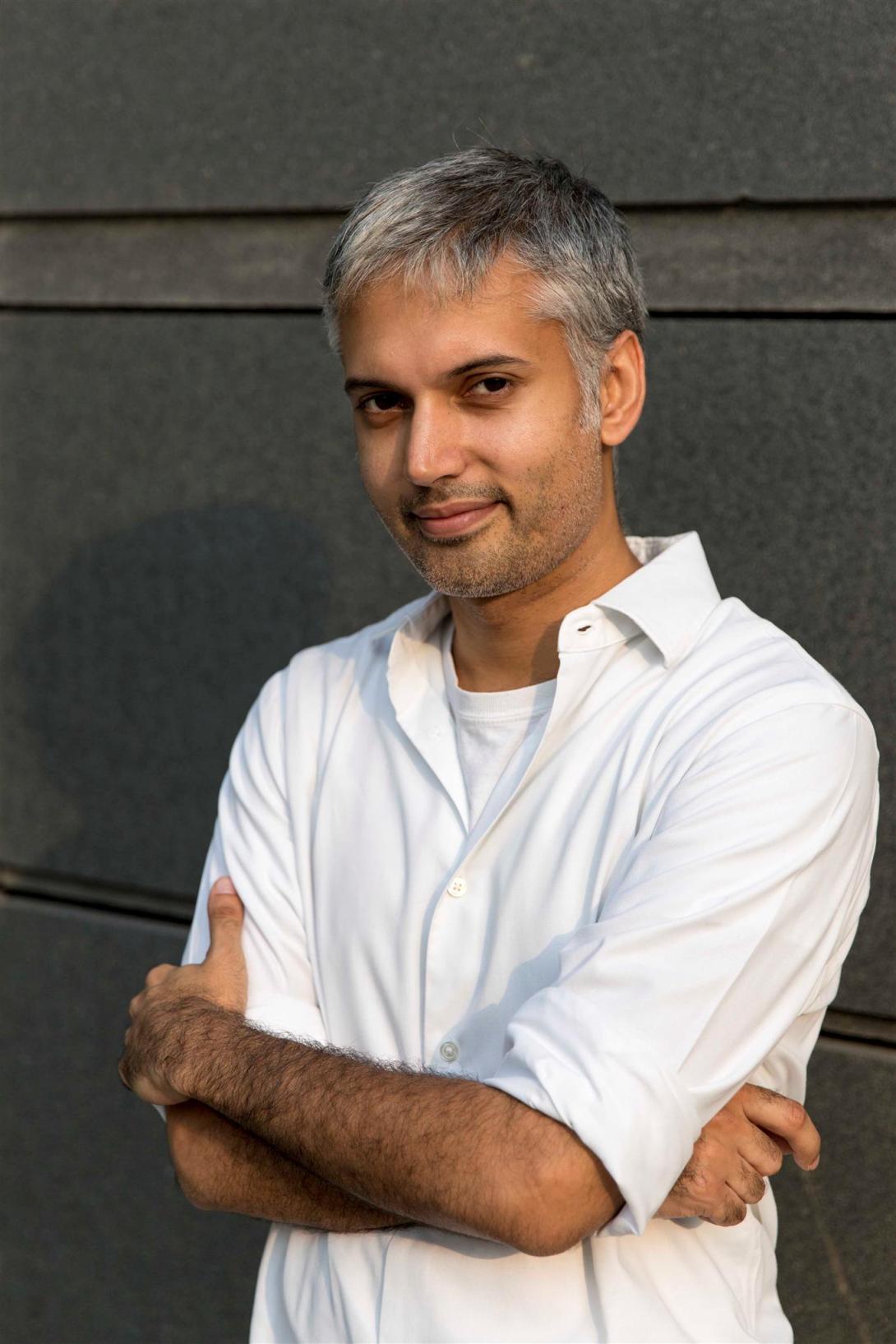
What about your experience inspired you to write Grey Sunshine?
Over the past ten years at Teach For India, I have met children and adults who have moved me to tears. Their stories have been simultaneously filled with despair and hope. They’ve also been filled with leadership and courage.
Together, those stories have reminded me—over and over again—that we have an injustice in this country that threatens the very moral fabric of our future. It’s an injustice that, today, guarantees that more than 75% of the country’s 320 million children are destined to drop out. Those kids are destined for a future that is, at best, bleak.
Those stories—and the immense and urgent need for change that underlies them—need to be told.
What did you learn through writing the book?
Oppression is startlingly real and disturbing. It transcends every facet of our lives, whether or not we choose to acknowledge it. Getting close to that reality is painful. But it’s so necessary. At the same time, our children’s lives are filled with so much richness. The more time I spent in communities, the more I began to hold those two truths. And the more I began to realize—actually realize—that our children and parents have to be true partners in this work.
The need for optimism couldn’t be more important. We have stories of leadership and change, led by our alumni, who are together impacting hundreds of thousands of children across this country. We have reason to be hopeful. As we look across the duality of those two realities—the inequity our children face and the rapidly burgeoning movement of change—it’s easy to grow burdened by the former. Progress is going to demand that we fight that possibility and that we remain hopeful.
What are some examples of progress you’ve seen since you first set foot in the classroom?
I’ve had the remarkable privilege of watching more than 4000 people complete the Teach For India Fellowship. Seventy percent of them continue to remain in education. Over the past ten years, more than 100,000 have applied to join the Fellowship. Together, those numbers give me hope. They tell me that we have a country that wants change – and that’s willing to do something about it.
Underlying those numbers are very real stories—of people who’ve started schools and, today, are proving that the 76% dropout rate doesn’t have to be our reality; of people who are staying in the classroom, because they believe in their children’s future; of people who have started organizations, joined hands with other alumni, or entered politics, all to ensure that our children have a better tomorrow.
In closing, what gives you the most hope for the future of India’s children?
In addition to the stories of leadership and change I’ve shared, it’s our children that give me hope. I have grown to believe that our kids must become real partners in this work. The immense hope and potential they hold is more than enough. Our job is to unleash that potential—to listen and to give rise to their voices.
Read additional excerpts and learn more about Grey Sunshine: Stories From Teach For India.
